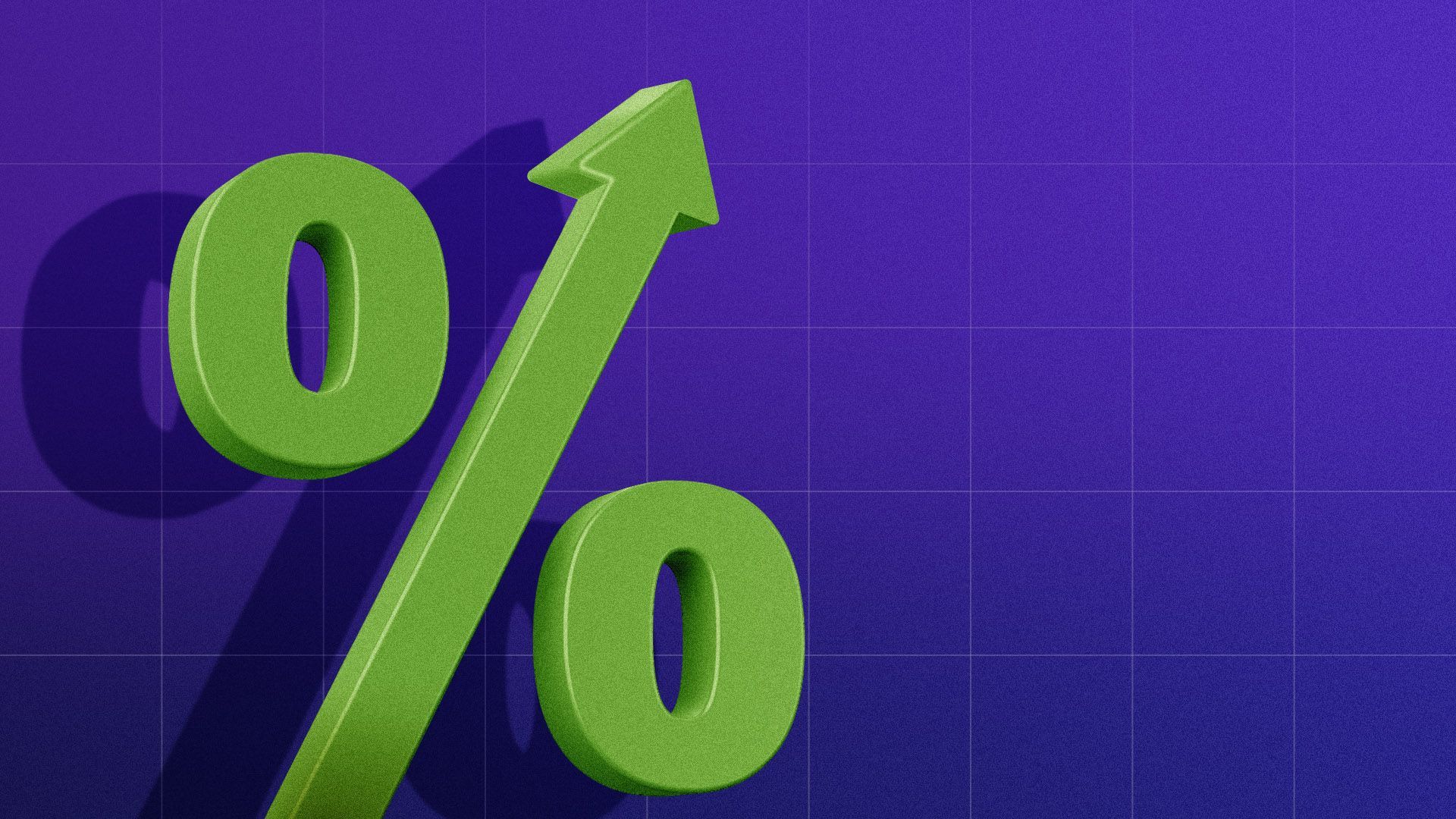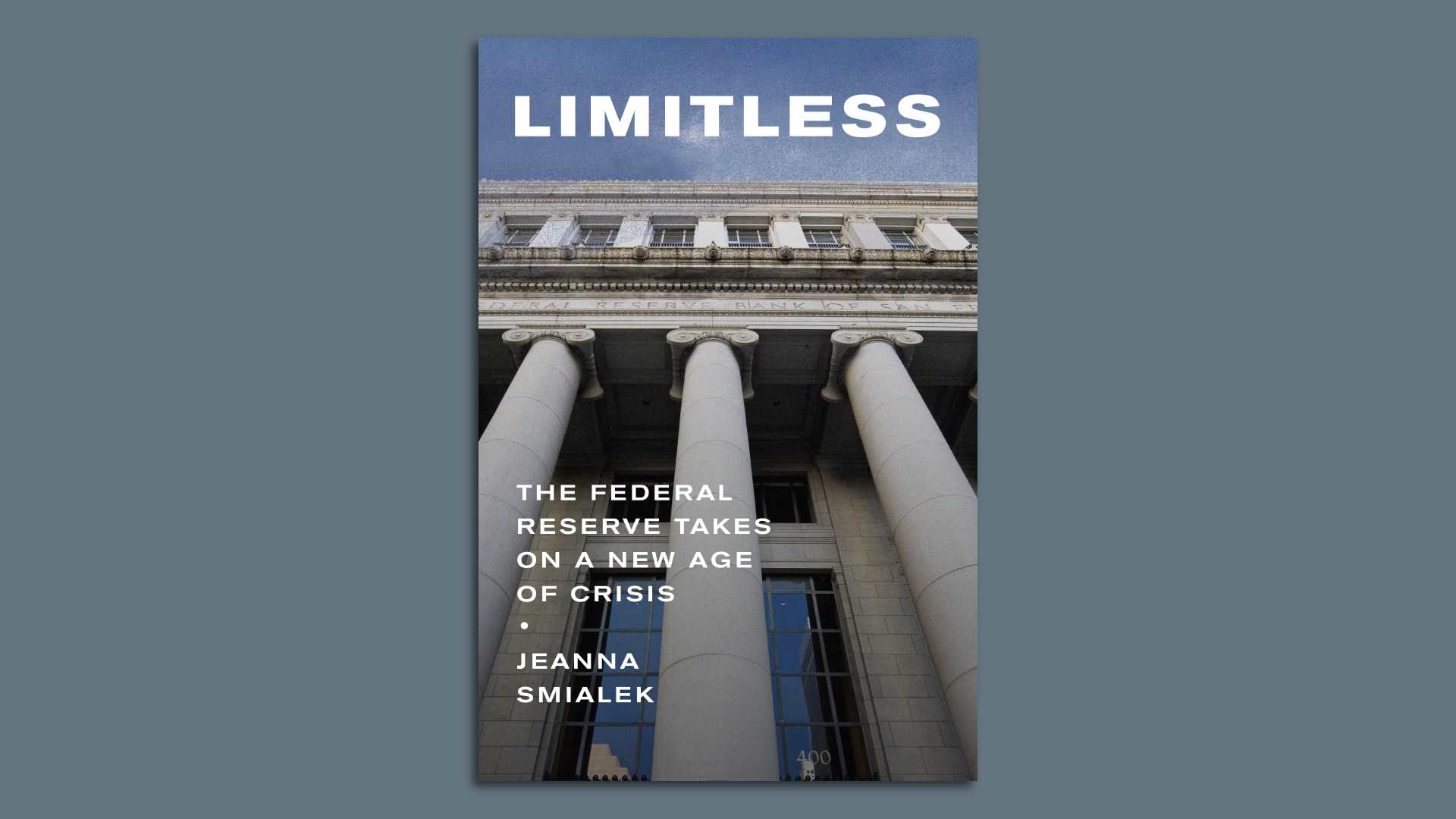Plus: Buzzy Fed book | Tuesday, February 28, 2023
| | | | | | | Presented By Panasonic | | | | Axios Macro | | By Neil Irwin and Courtenay Brown · Feb 28, 2023 | | We're looking at a buzzy new book about the Federal Reserve, out today, from one of our competitors on the economics beat. - But first, what to know about some surprisingly hot inflation numbers out this morning from France and Spain. 🇫🇷 🇪🇸
Today's newsletter, edited by Javier E. David, is 588 words, a 2-minute read. | | | | | | 1 big thing: Europe's unpleasant surprise |  | | | Illustration: Sarah Grillo/Axios | | | | The path to arresting inflation in the United States might be more zigzag and not the straight, neat line some may have thought heading into 2023. The same looks increasingly true across the Atlantic. Why it matters: In both the U.S. and Europe, the latest readings suggest interest rates will have to go higher, and possibly stay there longer, with effects that will ripple around the globe. Driving the news: Bloc-wide eurozone inflation data will be released Thursday, but early data suggests price gains are reaccelerating in some of the continent's largest economies. The numbers have pushed up investors' expectations for where rates in the eurozone will ultimately top out. - In France, prices jumped 7.2% in the 12 months ended in February, the fastest pace on record. ING economist Charlotte de Montpellier warned the nation's inflation "had not yet peaked."
- In Spain, price pressures did not recede as economists anticipated, with inflation hitting 6.1%, up from 5.9% in January.
- The numbers caused eurozone bond yields to spike, as investors concluded the European Central Bank will tighten further. Ten-year Spanish yields were up 0.09 percentage points today, their highest levels since the eurozone crisis a decade ago.
The big picture: Europe has seen a big drop in energy prices, reversing an earlier spike when Russia invaded Ukraine, putting downward pressure on overall inflation in the bloc. - Euro-area inflation was a still-high 8.6% in January, though that has steadily fallen from the peak of 10.6% for the year ended in October.
- The problem is that everything else is still getting more expensive. The bloc's core measure of inflation that strips out energy and food costs hit a record 5.3% — a sign of sticky, underlying inflation that's worrying policymakers and keeping them hawkish.
In an interview with Reuters out this morning, ECB's chief economist Philip Lane (who is considered more dovish than some of the central bank's other policymakers), pointed to favorable developments that could ultimately push inflation down. - That includes fewer supply chain bottlenecks, the reopening of China's economy and lower energy prices.
|     | | | | | | A message from Panasonic | | Driving the future of sustainable transportation | | |  | | | | As the leading electric vehicle (EV) battery manufacturer in North America, Panasonic continues to build on decades of battery expertise and technology innovation in the service of creating a greener, more equitable future. Learn how we're advancing the EV industry. | | | | | | 2. The new Fed book everybody's talking about |  | | | Courtesy of Knopf | | | | Three years ago, the world shut down and the Fed stepped up. Yet until now, America hasn't fully wrestled with the central bank's pandemic-era actions — barely a decade after the global financial crisis required similarly audacious rescue efforts. - A new book by ace New York Times Fed reporter Jeanna Smialek pulls back the curtain on the central bank's actions.
State of play: "Limitless," out today, shows Fed chair Jerome Powell, former No. 2 Lael Brainard, then-bank regulation chief Randal Quarles and others in action. The group pushed the Fed's authorities to the breaking point in wide-ranging efforts to backstop the economy at the pandemic's onset. - That included undertaking previously unheard-of steps to bolster the markets for junk bonds, state and local governments, and small and midsize business lending.
- The Fed's support for the financial system was, as the book title suggests, limitless.
Smialek has the goods on the internal debates and tells the story as a crisp, character-driven narrative with more than a dollop of history. We particularly like the "frenemies" dynamic she captures between Brainard, the lone Democrat on the Trump-era Fed, and arch-libertarian Quarles. - But her narrative raises a broader question created by the crisis.
- The fact that the Fed has done all those things, however reluctantly, raises the chances that future presidents may install central bankers who are willing to use those powers in more capricious — and destructive — ways.
|     | | | | | | A message from Panasonic | | Deepening our commitment to sustainability | | |  | | | | Panasonic is helping lead the changes necessary to address the climate crisis. Here's how: From creating more sustainable business practices, products and solutions to helping our customers integrate sustainable technologies in their projects. Learn more. | | |  | | Are you a fan of this email format? Your essential communications — to staff, clients and other stakeholders — can have the same style. Axios HQ, a powerful platform, will help you do it. | | | | | | Axios thanks our partners for supporting our newsletters.
Sponsorship has no influence on editorial content. Axios, 3100 Clarendon Blvd, Arlington VA 22201 | | | You received this email because you signed up for newsletters from Axios.
To stop receiving this newsletter, unsubscribe or manage your email preferences. | | | Was this email forwarded to you?
Sign up now to get Axios in your inbox. | | | | Follow Axios on social media:    | | | | | |
No comments:
Post a Comment
Keep a civil tongue.